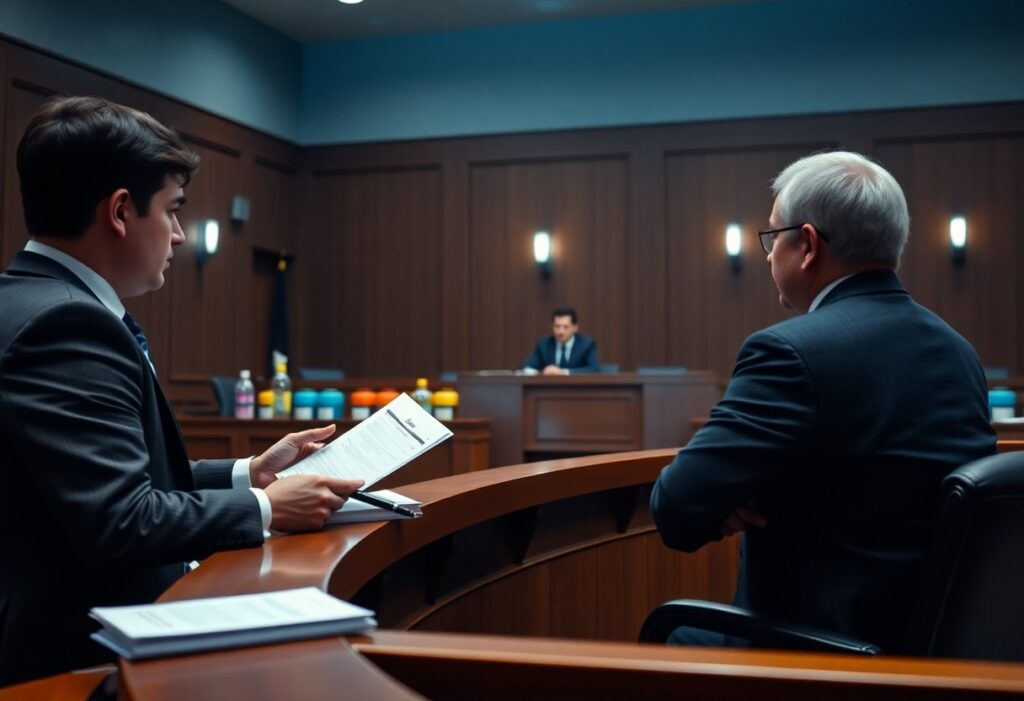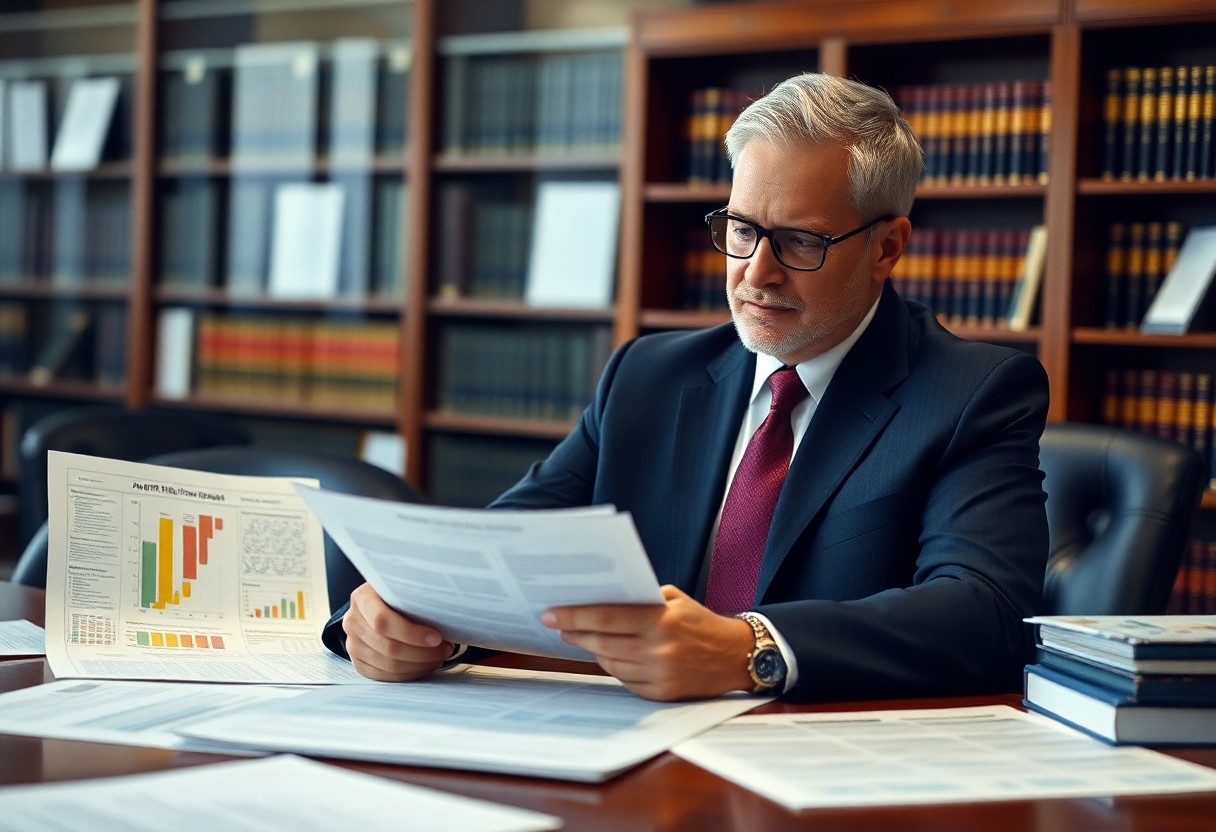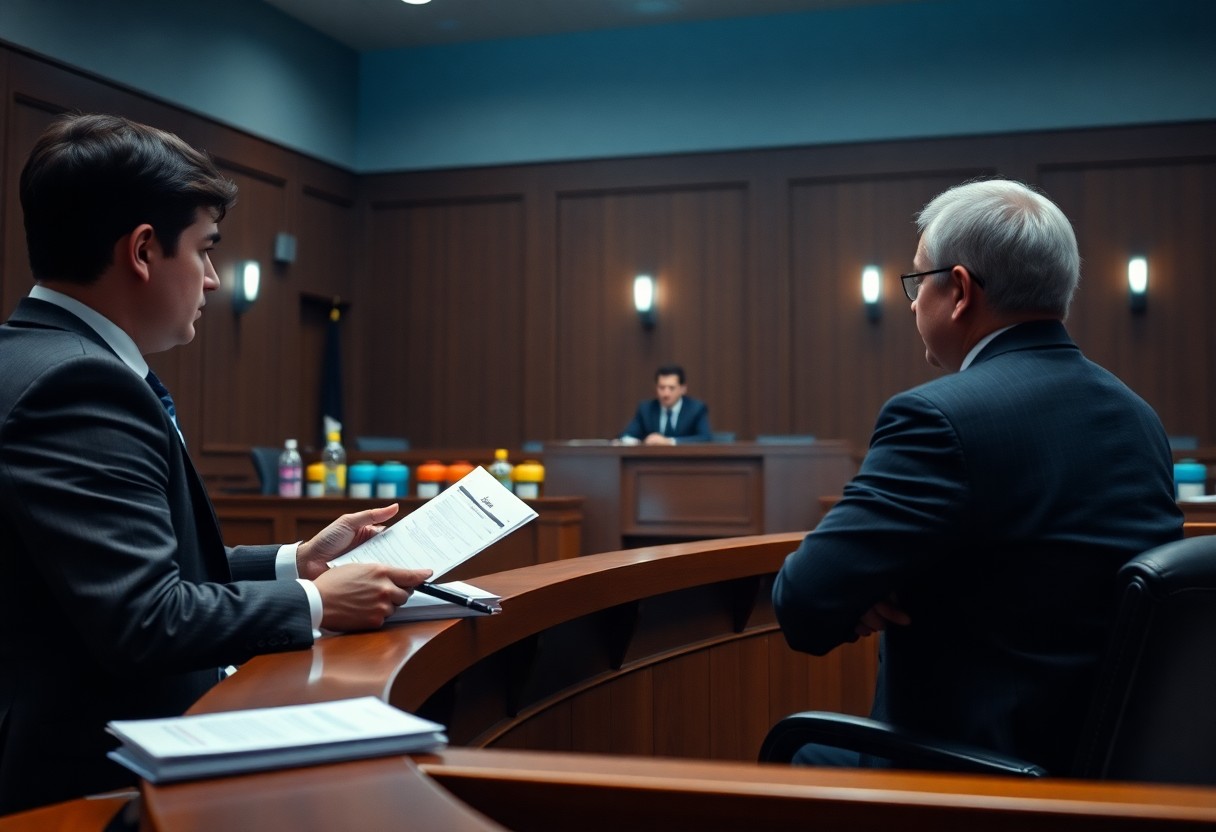Most individuals facing environmental toxicity issues caused by AFFF (aqueous film-forming foam) exposure are unaware of how to find the right legal representation. To protect your health and seek justice for any damages, it’s necessary to choose a lawyer with expertise in environmental law and AFFF-related cases. This guide will help you navigate through key factors such as experience, client reviews, and success rates, enabling you to make informed decisions for your legal needs in this important matter.
Understanding AFFF and Its Environmental Impact
Before venturing into the complexities of environmental toxicity cases, it’s important to understand what AFFF is and how it affects our surroundings. Aqueous Film-Forming Foam (AFFF) is a fire-fighting agent primarily used to combat flammable liquid fires. You might come across this foam in military operations, airports, and various industrial settings. AFFF contains per- and polyfluoroalkyl substances (PFAS), which are known for their ability to create a barrier that suppresses flames. However, these same chemical properties raise significant concerns regarding their long-term effects on the environment and human health.
What is AFFF?
Any exposure to AFFF necessitates a closer look at its composition and how it is utilized. This foam is designed to provide effective fire suppression, making it common in many applications. However, the synthetic chemicals embedded in AFFF, particularly PFAS, have a tendency to persist in both the environment and the human body, leading to potential bioaccumulation. As such, this creates a pressing need for awareness about the implications of using AFFF and the legacy it leaves behind.
Health and Environmental Risks
AFFF poses considerable health and environmental risks that you should be aware of. Studies have shown that exposure to PFAS can lead to a range of health issues, including hormonal disruption, developmental problems, and an increased risk of certain cancers. These chemicals can seep into groundwater, contaminating drinking water supplies and affecting ecosystems, leading to large-scale environmental degradation. This situation mandates urgent attention, as the long-term effects of AFFF are not fully understood, and cleanup efforts can be expensive and complicated.
What remains alarming is the fact that PFAS can be found in the blood of many individuals, even those who have never directly come into contact with AFFF. This prevalence illustrates how these chemicals can migrate through various pathways, underscoring their dangerous persistence. Moreover, regulatory measures are still evolving, leaving you potentially vulnerable to health threats if exposed. As you consider your options for legal representation in environmental toxicity cases, understanding the full scope of AFFF’s impact will be vital in advocating for accountability and remediation.
Key Factors to Consider When Choosing an AFFF Lawyer
While selecting the right AFFF lawyer for your environmental toxicity case, several key factors should guide your decision. Take the time to evaluate the following aspects to ensure you choose a legal representative capable of handling your complex situation effectively:
- Experience in environmental law
- Specialization in AFFF-related cases
- Reputation in the legal community
- Track record of successful outcomes
- Client testimonials and reviews
Thou must conduct thorough research to find the lawyer who meets these criteria and aligns with your specific needs.
Experience in Environmental Toxicity Cases
There’s no substitute for experience when it comes to establishing a strong legal strategy. You want an attorney who has a rich history of dealing with environmental toxicity cases, particularly those involving AFFF (Aqueous Film Forming Foam). A lawyer with this dedicated experience will be familiar with the unique challenges and intricacies surrounding toxic exposure claims, including the scientific and medical evidence often involved. Their expertise can make a significant difference in the outcome of your case.
Reputation and Track Record
To ensure you are making an informed choice, you should investigate the reputation and track record of potential lawyers. Consider whether they have been recognized in the legal community for their work on AFFF lawsuits or other environmental toxicity issues. Look for attorneys who have received accolades or endorsements from peers or industry organizations, as these insights can be telling of their capabilities and commitment to clients.
Environmental factors play a big role in the success of your case. An attorney’s proven ability to secure favorable settlements or verdicts can be a strong indicator of their effectiveness. Identify lawyers with a history of winning cases against well-resourced defendants, as this shows their skill in navigating complex legal battles. Their reputation among clients is equally important; look for positive testimonials about their communication, empathy, and reliability, as these qualities are vital for a strong attorney-client relationship. Always opt for a lawyer who displays not only a positive history but also a deep understanding of the intricate challenges posed by your unique situation.
Essential Tips for Finding the Right AFFF Lawyer
Assuming you are in the process of finding the best AFFF lawyer for your environmental toxicity case, there are several vital tips that can aid you in making the right choice. First, consider the lawyer’s experience in handling cases specifically related to AFFF (Aqueous Film Forming Foam) and environmental toxicity. You can streamline your search by looking for professionals who demonstrate a strong background in these areas, indicating that they are well-versed in the intricacies of the law governing toxic substances and their effects. Additionally, seek out lawyers who have received positive feedback from previous clients, as this can speak to their effectiveness and reliability.
- Look for specialized experience with AFFF cases
- Check online reviews and testimonials
- Ensure they have a solid understanding of environmental law
- Verify their track record of success in similar cases
This approach will provide you with a solid foundation for making an informed decision.
Researching Potential Lawyers
Clearly, the first step in identifying the right AFFF lawyer is conducting thorough research on potential candidates. Use various resources such as legal directories, state bar associations, and online reviews to compile a list of lawyers who specialize in environmental toxicity cases. Pay close attention to their track record, including case outcomes and settlements, which can provide insight into their capability to handle your case effectively. Additionally, you might want to look for any published materials, such as articles or blogs written by the lawyers, as this demonstrates their engagement and knowledge in the field.
Once you have a list of candidates, take the time to assess their professional background and qualifications. Look at their educational history, any relevant continuing education courses, and overall experience in environmental law. This detailed research will help ensure that the lawyer you choose has the specialized knowledge necessary to successfully advocate for you in an AFFF-related case.
Asking the Right Questions
There’s no doubt that asking the right questions is pivotal when selecting an AFFF lawyer. Understanding their approach to your case and their level of expertise is vital. Prepare a list of questions that focus on their experience with AFFF-related claims, their strategy for your specific situation, and the resources they have at their disposal to investigate potential toxic exposure. Additionally, inquire about their communication style and how often you can expect updates regarding your case progress.
Lawyers who are knowledgeable about AFFF cases will openly discuss their strategies and provide insight into the potential challenges your case may face. It’s important to gauge their ability to communicate effectively and how well they align with your expectations. Focus on their willingness to listen and address your concerns, as that can significantly affect your experience throughout the legal process. By ensuring a thorough and engaging dialogue, you increase your chances of finding an attorney capable of guiding you confidently through your environmental toxicity case. This process allows you to select an advocate who is not only skilled but genuinely invested in achieving a successful outcome for your situation.
Evaluating Legal Resources and Support
Your decision to engage a lawyer for AFFF environmental toxicity cases should be based on their resources and support systems. Having a well-equipped legal team can significantly enhance your case’s potential for success. Consider how accessible they are to expert witnesses, legal literature, and ongoing support, as these components can be the key to constructing a compelling argument in court. A lawyer with a broad network of specialists will possess the capability to substantiate the impacts of AFFF exposure that you and your community might have suffered, which can validate your claims and strengthen your position.
Access to Expert Witnesses
If your attorney has established connections with qualified expert witnesses in the field of environmental science, health, and toxicology, this can be a game-changer for your case. Expert witnesses can provide testimony that directly links AFFF exposure to specific health issues, which may be critical for demonstrating liability. Additionally, their opinions can lend credibility to your case, making it more persuasive to judges and juries alike. Ensure your chosen lawyer is familiar with the pertinent experts who can articulate the dangers of AFFF and how it impacts the community.
Availability of Comprehensive Legal Materials
Availability of comprehensive legal materials is paramount in building a robust case for environmental toxicity. You must seek out a lawyer who has an extensive library of relevant case law, scientific studies, and legal precedents at their fingertips. These materials can be instrumental in crafting effective legal arguments and negotiating settlements. A well-prepared attorney should be knowledgeable about both state and federal regulations surrounding environmental contaminants like AFFF and should have the necessary legal documentation to support your claims.
Witnesses who can provide detailed insights into AFFF’s effects help outline the environmental and health risks associated with its exposure. A lawyer’s ability to secure detailed reports and opinions from these witnesses will lend considerable weight to your case. These resources ensure that your case is backed by scientifically valid evidence, facilitating a more formidable stance against potential defendants. This level of preparedness plays a significant role in attaining a favorable outcome in your environmental toxicity case.
Understanding Legal Fees and Payment Structures
For individuals facing the daunting task of identifying a qualified AFFF lawyer for environmental toxicity cases, understanding legal fees and payment structures is crucial. Legal fees can vary significantly based on the lawyer’s experience, the complexity of the case, and the method of payment. Familiarizing yourself with the various fee arrangements can help you make informed choices and directly impact the success of your case. You may encounter options such as contingency fees, hourly rates, and hybrid models that combine the two. Each of these methods has its advantages and considerations that you should assess before making a decision.
Contingency Fees vs. Hourly Rates
On the one hand, contingency fees mean that your lawyer only gets paid if you win your case, taking a percentage of the settlement or award. This arrangement can provide you with a sense of security, as you won’t incur any legal expenses unless you achieve a favorable outcome. However, it’s important to clarify what percentage your lawyer will take and whether you will be responsible for any other costs, such as court fees or expert witness fees. On the other hand, hourly rates involve paying your attorney for every hour worked on your case, regardless of the outcome. This can lead to higher upfront costs and may not be ideal if you’re uncertain about the viability of your case.
Transparency in Billing
With the complexity of legal fees, transparency in billing practices is of utmost importance. You want to ensure that there are no hidden fees or unexpected charges throughout the legal process. Ask your potential lawyer how they bill for services, what expenses you may incur, and how often you will receive billing statements. Establishing clear communication about these aspects can help you maintain control over your budget and financial well-being as your case unfolds.
A lawyer who practices transparency in billing will provide detailed invoices that break down the time spent on each task, any advanced expenses, and the rationale behind each charge. This level of detail not only fosters trust but also empowers you to keep track of your legal costs throughout the process. By ensuring you are fully informed about what you are paying for, you can make better decisions about your legal strategy and ensure that you are working with a lawyer who values ethical practices.
Importance of Client-Lawyer Communication
Despite the complexities surrounding environmental toxicity cases, effective communication between you and your lawyer can significantly influence the outcome of your situation. Maintaining an open line of communication allows you to express your concerns and questions, while your lawyer can provide you with guidance tailored to your specific case. If you’re looking for assistance, you can Find the Best AFFF Lawyer for Your Case | Justice Hero who understands the importance of keeping you informed and involved throughout the legal process.
Establishing a Good Rapport
Even if you’re dealing with sensitive topics such as environmental toxicity, a strong rapport with your lawyer goes a long way in building trust and understanding. When you feel comfortable with your legal representative, you’re more likely to share all the necessary details surrounding your case. This relationship can foster honesty, allowing your lawyer to create the most effective strategy to support you in your pursuit of justice.
Frequency of Updates
You should expect regular updates from your lawyer regarding the progress of your case. This ongoing communication not only keeps you informed but also reassures you that your legal matters are being handled diligently. Frequent updates can cover new developments, changes in strategy, or even shifts in timelines. Being kept in the loop helps you stay engaged in the process and enables you to make informed decisions.
Updates foster a sense of partnership in your legal journey. When your lawyer provides consistent communication, it signals their commitment to your case. You benefit from understanding what steps are being taken on your behalf, and if any challenges arise, you can work together to strategize solutions. The more you’re informed, the more empowered you become throughout this often daunting process.
Summing up
To wrap up, identifying the best AFFF lawyer for environmental toxicity cases involves a thorough evaluation of their experience, specialization, and track record. You should seek an attorney who has a comprehensive understanding of AFFF-related litigation and a proven history of handling similar cases successfully. It’s important to consider their ability to navigate complex legal frameworks and the specific scientific data often involved in such cases. Be proactive in your discussions, as this will not only provide you with insight into their legal strategies but also help establish a level of comfort and trust in their capabilities.
Your choice of lawyer can significantly impact the outcome of your case. Engaging with potential attorneys through consultations is a great opportunity to assess their communication style and responsiveness. Ensure that they are willing to collaborate closely with you throughout the legal process and are committed to seeking just compensation for you. By conducting diligent research and careful comparisons, you can make an informed decision that aligns with your specific needs and circumstances in navigating your AFFF toxicity case.

















